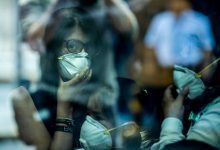Lockdowns and social distancing despite relaxations have caused invisible wounds, various kinds of mental illness to surge, reveals Bonani. An exclusive for Different Truths.
With the pandemic, showing no signs of abating, coupled with a spate of untoward incidents both internal and external occurring with unprecedented rapidity, there has been a surge in feelings of anxiety and panic all around. This is adding fuel to the raging fire and playing havoc on the minds of the people. Some are resilient fence-sitters, while others are succumbing to the widespread gloom.
Invisible wounds are beginning to surface. These are anxiety, insomnia, irritability, mood swings and stress caused by the general socioeconomic disruption. Those with the earlier history of mental illness are experiencing even more defined and intense waves of depression and suicidal thoughts.
Invisible wounds are beginning to surface. These are anxiety, insomnia, irritability, mood swings and stress caused by the general socioeconomic disruption. Those with the earlier history of mental illness are experiencing even more defined and intense waves of depression and suicidal thoughts. Mental health experts foresee a secondary pandemic in the region of mental health, which might rear its ugly head in the coming three to six months.
Dr Elke Van Hoof, Prof. of Psychology, Vrije University, Brussel, opines that with some 2.6 billion people around the world, in some kind of lockdown, we are conducting arguably the largest psychological experiment ever, and taking action right now, can help mitigate the toxic effects of Covid-19 to some extent.
Dr Elke Van Hoof, Prof. of Psychology, Vrije University, Brussel, opines that with some 2.6 billion people around the world, in some kind of lockdown, we are conducting arguably the largest psychological experiment ever
Experts feel that as social beings, connectivity with each other and mental health are intrinsically linked, and both things are at risk in the pandemic.

The first thought that preys upon the mind, is fear, which can be minimised only by accessing facts through trusted sources. Aishya Malik, technical officer, in Department of Mental Health, WHO specifies firstly WHO and secondly one’s own government authority to be the tried and trusted sources.
With a plethora of news doing the rounds via the media, it’s not surprising that there might arise the possibility of an infodemic, a spread of misinformation. So we must curtail and be intentional while gathering information. Focussing on the credible and positive bits of news, like on the number of recoveries instead of on the number of deaths can do the trick. Talking to people in our innermost circle of friends and family who won’t be judgemental and will be discerning enough to detect any discordant note does the work of therapy. Technology comes to our rescue here. On-call, phone-based mental health support must be made even more prolific. Exercising and indulging in relaxing habits, keeping oneself busy in productive routine work and grounding oneself in prayers and meditation goes a long way to defeat the inner warring demons.
With a plethora of news doing the rounds via the media, it’s not surprising that there might arise the possibility of an infodemic, a spread of misinformation. So we must curtail and be intentional while gathering information. Focussing on the credible and positive bits of news, like on the number of recoveries instead of on the number of deaths can do the trick.
The health workers on the frontline might experience post-traumatic stress as they mentally relive the process. They ought to sift through the emotions and put apart their own feelings from that of the patients and uphold themselves only as empathisers.
Within the confines of the home peripheries, there might be an unprecedented rise in domestic violence, home mismanagement, child maltreatment and other emotional upheavals. The work front might encounter burnouts, distress and absenteeism due to fear of contagion.
Aisha Malik suggests that we ought to “think about mental health as part of public health response to Covid-19”, and try to include mental health parameters into the mainstream.
Aisha Malik suggests that we ought to “think about mental health as part of public health response to Covid–19”, and try to include mental health parameters into the mainstream.
 So to defeat the outbreak a sense of hope, empathy and optimism should be infused to allay fear and anxiety.
So to defeat the outbreak a sense of hope, empathy and optimism should be infused to allay fear and anxiety.
The citizens and government ought to work in tandem, in order to brave the storms, likely to increase in the coming months. Our lives, I fear, shall continue to be in some amount of turmoil, when social distancing will become even more imperative and unavoidable.
Photos from the Internet






 By
By

 By
By